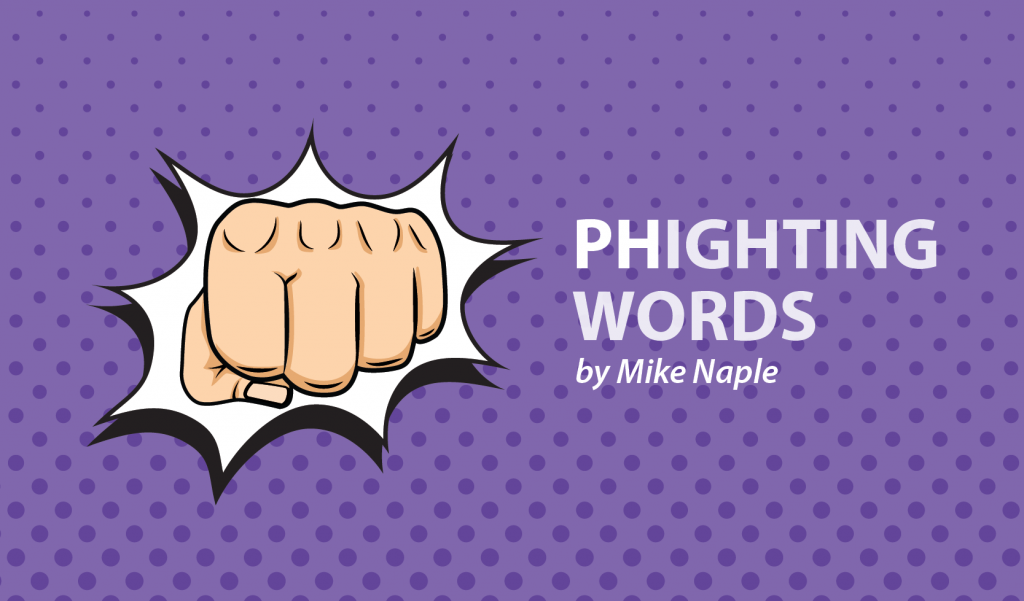Why Setting Goals Is Part of My New Normal
Written by |

I cannot believe 2018 is already upon us. I don’t know about you, but 2017 has felt like one ongoing, never-ceasing stress test. For many reasons. I have never been a big believer in New Year’s resolutions. In my experience, resolutions are cobbled together the first week of January, quickly embraced, more quickly abandoned — and often for show rather than actual personal improvement. When I did make them, the resolutions usually came with running shoes and a gym bag.
At the onset of the year, I knew 2017 would be unlike any year that came before for it. I started January fully aware that I would need to get a new job courtesy of the transition in presidential administrations. At the time, I couldn’t fathom that the seasons would turn from winter to spring, then to summer, before I would go back to work.
The other thing that made last year’s changing of the calendar different: I rang in the New Year living my “new normal” life with pulmonary hypertension (PH). That might not seem like such a big deal on its face. I had been diagnosed the previous April and spent the second half of 2016 adjusting to the challenges that come with a chronic illness. I soon learned that acceptance and adjustment go hand-in-hand and that I couldn’t necessarily have one without the other.
The “new normal” is especially daunting when stubbornness over the limitations that come with living with PH holds you back. For a time, I was so preoccupied with seeing my “new normal” as a series of activities I could no longer do, I completely lost perspective about what I was still able to do. Going a bit further, it was hard to see beyond the pills or the oxygen concentrator to the activities I was able to do when I took care of myself and managed my PH.
This brings me to the importance of having goals. While resolutions might not have taken me all that far prior to my PH diagnosis, setting and achieving goals are a mainstay for me and my treatment now. I think goals can add richness to life and open you up to new experiences, and they can provide direction and focus for whatever life hands you.
A year ago in December, I struggled a bit to come up with a few goals that were both achievable and challenging. Climbing Mount Everest would not have made much sense for me, but I could tackle a mountain of books. The child of a librarian, I have always had a passion and love for reading and I thought this could be doable. Plus, I needed something to focus on while looking for a job.
I set my sights on 25 books for the year. You might be thinking, yeah, a 25-book benchmark is nothing, and I would agree with you. I know some people who read 100 books a year, tearing through one paperback after another. But this number worked for me, and I approached this goal with enthusiasm, fervor, and purpose. After experiencing a year in which I felt like I had lost control over my body, there was something empowering about determining my own parameters and choosing a goal that I felt was achievable.
I read a wide variety of books throughout the year: a mix of novels, memoirs, science, social commentary, and humor. Some of the standouts included Donna Tartt’s “The Goldfinch,” Anthony Doerr’s “All The Light We Cannot See,” Mohsin Hamid’s “Exit West,” and a biography about Tom Petty (rest in peace), among others.
If I could no longer physically exert myself as much as I used to, certainly I could attempt to slow down and find myself in the pages of a good book. I soon found myself surrounded by more books than I had time to read, and my nightstand resembled the Leaning Tower of Pisa.
Since PH has no cure, it is easy to become overwhelmed by the sense that you have lost control of your life and that your body is preventing you from achieving the things you did prior to your diagnosis. I wrote recently about how these feelings can often lead to anger. Setting goals can help redirect some of these feelings and restore a sense of purpose or control. Goals are also what you make of them. Beyond the reading challenge, two other goals of mine were to take all of my medication consistently and completely throughout the day (sometimes easier said than done) and to engage with more PHighters in the PH community.
Looking ahead at 2018, I am proud that I surpassed my reading challenge — hitting the 30-book mark. I will probably increase that by five or so for the next year. I will also revisit that gym bag resolution, because physical exercise — as much as one is able to do — is a vital part of managing PH (and I need to do better).
What is one of your goals for 2018?
Follow Mike Naple on Twitter @mnaple.
***
Note: Pulmonary Hypertension News is strictly a news and information website about the disease. It does not provide medical advice, diagnosis, or treatment. This content is not intended to be a substitute for professional medical advice, diagnosis, or treatment. Always seek the advice of your physician or other qualified health provider with any questions you may have regarding a medical condition. Never disregard professional medical advice or delay in seeking it because of something you have read on this website. The opinions expressed in this column are not those of Pulmonary Hypertension News or its parent company, Bionews Services, and are intended to spark discussion about issues pertaining to pulmonary hypertension.





Maureen McCarthy
This hits home with me. I was diagnosed with CTEPH last January 5th and have struggled a lot this year. I have had improvements due to 5 BPA procedures. However, I hoped that I would enter 2018 free from supplemental oxygen and that just isn't so. I have set goals and am going to the gym as many days as possible. I am able to do a lot more than I could a year ago. I hope with exercise and adherence to med schedules that I will lose the weight I have gained and feel even better by the end of 2018. One realistic goal at a time.
Angela Zagami
Great article, Mike. Keep persevering. I love you so much and I'm so proud of you